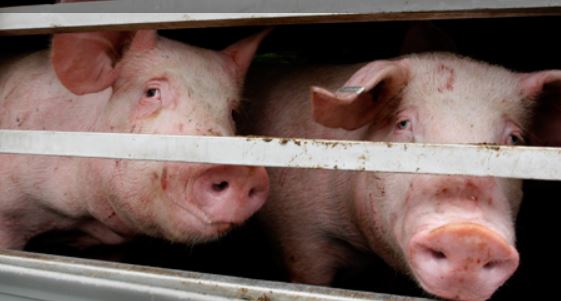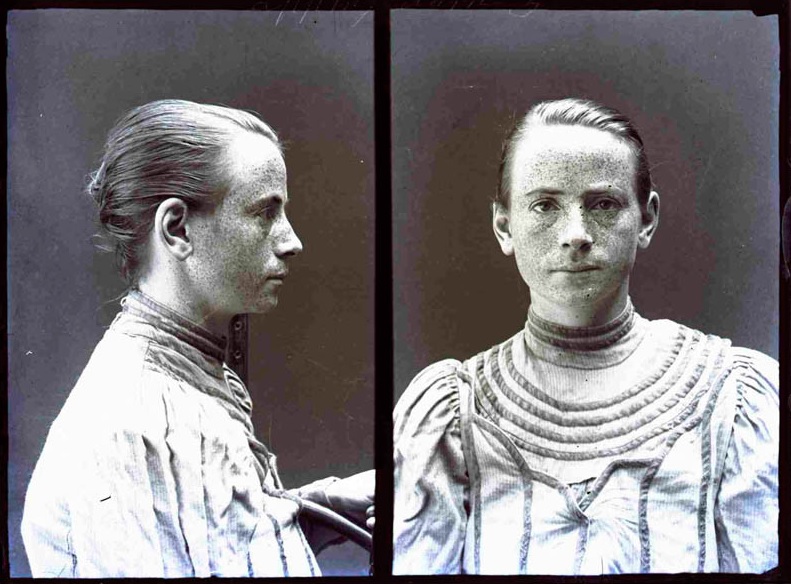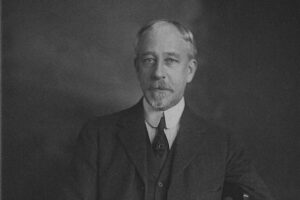 In early fall of 1913, german inventor Rudolf Diesel disappears during a night crossing from Belgium to England. One moment he is having dinner with two business compagnions, next he goes to his cabin for the night, never to be seen again. The official explanation is suicide, but some weird happenings after indicate something very different.
In early fall of 1913, german inventor Rudolf Diesel disappears during a night crossing from Belgium to England. One moment he is having dinner with two business compagnions, next he goes to his cabin for the night, never to be seen again. The official explanation is suicide, but some weird happenings after indicate something very different.
Sunday evening September 29th 1913. World peace is at geopardy, but no-one has ever heard of world war. On the belgian coast the last sunlight disappears at the horizon and the SS Dresden has just set out for Harwich. The first class passengers have joined dinner, the steam machine makes the table silver tinkle smoothly and three gentleman in a corner of the dining room just finished their main course. One of them obtained fame and wealth by inventing a revolutionary engine that will eventually replace the steam machine.
Rudolf Diesel is aged 55 and has a friendly face with glasses. His career is impressive, he is worth 2.5 million dollars (which would be around 62 million today) and about to retire. Together with his friends and business partners Luckmann and Carels Diesel is on his way to London to attend the annual board meeting of Consolidated Diesel Engine Manufacturers.
Banned from Paris
Rudolf Christian Karl Diesel is born in Paris on 18 March 1858 as the second child of german immigrants Elise Strobel and Theodor Diesel. Theodor, who was born in Augsburg, is a bookbinder in Paris, where he meets Elise, from Nuremberg. Later, he starts trading leatherware.
Due to the Franco-Prussian War, the Diesel family become unwanted in France, so they move to London. Shortly after, his parents send 12 year old Rudolf back to Augsburg, to move in with his uncle and aunt. His oncle is a maths teacher, the industrial revolution is ongoing and little Rudolf decides he wants a technical career. After highschool, he joins a technical education in Augsburg and the technical universitiy of Munich. One of his teachers there is Carl von Linde, a brilliant engineer and inventor of cooling technology, who will eventually, in the year Diesel disappears mysteriously, wins the Nobel Prize in Physics.
After graduating in 1880, Diesel returns to Paris. He comes across Von Linde and starts working for him. Three years later, he meets Martha Flasche and they become the parensts of three children. In 1890 the family moves to Berlin and Diesel gets a high position at the Linde company.
Instant succes
 Working on the early cooling technique, Diesel starts thinking about alternatives for the steam machine and combustion engine. He believes the efficiency of these machines is far too low and he invents a system of ignition by pressure. As the combustion takes longer and happens under higher pressure, the output turns out to be much higher.
Working on the early cooling technique, Diesel starts thinking about alternatives for the steam machine and combustion engine. He believes the efficiency of these machines is far too low and he invents a system of ignition by pressure. As the combustion takes longer and happens under higher pressure, the output turns out to be much higher.
In 1892 he registers his invention and armament manufacturer Krupps turns out to be an investor. One year later, the first prototype runs on arachis oil. The huge machine has a 22 centimeter bore and 40 centimeter stroke. In 1895, it has an efficiency of 16,6 percent.
The next year, Diesel starts working on a revisited version, achieving 26,2 percent out of petrolium. THis machine is showcased during a 1889 exposition in Munich. According to the Grande Encyclopedie Practique de Mechanique et d’Electricité from 1910, the efficiency and simplicity make Diesel’s machine an instant success. Diesel starts making money by selling manufacturing licencies. His invention is used in generators, locomotives, shipping, factories and automotive, turning Diesel into a wealthy man by the turn of the century. In 1912, more than 70,000 diesel engines are operational worldwide.
Disappeared
However, fortune doesn’t last forever.Autumn 1913, Rudolf Diesel and two business friends take the nightboat to England, on their way to a board meeting and an opening ceremony of a new factory. Diesel doesn’t make the crossing. He doesn’t show up for breakfast and when the ferry docks in Harwich, the inventor has disappeared without a trace. The mystery get headlines all over the world. The New York Times quote one of his travelling companions, George Carels, director of Diesel’s company: “After leaving Antwerp, we had dinner together. Next, we strolled on deck, chatting and smoking. Mister Diesel was well tempered. By 10 pm, the lights of Vlissingen in view, I suggested it was time to go to bed. Mister Diesel agreed and all three of us went to their cabins.”
According to Carels, Diesel seemed to hesitate at the entrance of his cabin. He walked back to Carels, shook his hand, wished him good night and said ‘See you in the morning’. “Those were the very last words he ever spoke to me”, Carels remembers.
Next morning, Diesel is missing at the breakfast table. Carels and Luckmann go to his cabin and knock on the door. No-one answers. They open the door, only to find Diesel’s bed unslept. “The blanket was folded and his nightgown was on top. His keys were in his bag and his watch hang in a position so he could read it from his bed”, Carels witnesses. “Everything seemed neat in his cabin. I could not tell if there was money missing, since I did not know how much he had on him. But it did not look as if someone had been through his things. But since hir arrival voucher had not been handed in, we knew for shure he had not disembarked. He was not on board either, so he had to have fallen overboard during the night.”
Heavy debts
Carels repeats Diesel seemed happy and cheerful during the last night. “If it wasn’t an accident, something must have gone wrong in his mind. He never drunk much, didn’t smoke and didn’t suffer from vertigo, as far as I know.” Still, Diesel had told some friends earlier that he would sometimes go through periods of insomnia, making him walk around all night, dead tired. Business worries and extreme work stress had damaged his health.
Two weeks after his disappearance, new facts show up. His presumed wealth is doubted by german newspapers, writing that Diesel left his family with heavy debts. It is rumoured that Diesel invested his money in unsuccessful companies and some newspapers suggest this was reason for Diesel to disappear one way or another.
On 14 October 1913, Diesel’s creditors meet up in Munich. They calculate his debts around 375,000 dollar, with only 10,000 dollar assets to cover up. On top of that, his real estate is booked for much more that its actual value.
Weird article
In March 1914,half a year after Diesel’s disappearance, Münchener Abend Zeitung publishes a weird article. According to the newspaper, some letters, received in Germany, would prove that Diesel started a new life in Canada. Since the paper doesn’t concretise its story, the rumour should not be taken too seriously. But by that time, it is obvious Diesel had some good reasons to vanish. It has always been unclear wether this body was ever recovered. A dead, well dressed man is found in the estuary of the Schelde river near Vlissingen, eleven days after Diesel’s disappearance. By the shape and age, it could have been Diesel. One day earlier, near Norway, another found body is suspected to be the missing engineer’s. The sailors won’t take the body on board, because it is too decomposed. But they do take some artifacs from this body and it is rumoured that Diesel’s son Eugen recognized them. But if it is true that Diesel wanted to escape from his creditors, Eugen had a good reason to make the world believe that his father was dead.
It is also rumoured that, shortly before setting off to England, handed a bag to his wife Martha, instructing her to open it a week later. So she does after the missing, finding 200,000 marks in cash. In his agenda, Diesel marked 29 September, the day of his disappearance, with a black cross.
History became legend, legend became myth. Tolkien could have written that line on Rudolf Diesel. True, it is most likely that financial trouble moved Diesel to kill himself that fateful night on the North Sea. But it is an attractive idea to believe that he fled to Canada, from where he has watched the uprising success of his invention from a distance. Fortunately, it is impossible that he lived to see the disaster called Dieselgate.
Conspiracy theories
Every mystery cries out for conspiracy theories. Even today, there are people who don’t believe Diesel’s passing was suicide, nor that he fled from his creditors. They say Diesel was thrown overboard and that there are two possible motives for murder. The oil industry had reasons to want him dead, because the diesel engine was so economical that they feared for their business. Hardly believable, since no-one ever killed Elon Musk so far.
Slightly more believable is the theory that Diesel travelled to England to sell his knowledge to the british navy. The first world war was forthcoming and diesel engines were crucial for german submarines. The german secret service might have stopped him from selling it to the English.



 Although he never drove a car, William Phelps Eno (1858-1945) developed a deep engagement with traffic from an early age. Only nine years old, holding his mother’s hand, Bill was amazed by the New York traffic jam. A jam of horses and carriages that is, for it was the year 1867, when Henry Ford still was a farmer’s boy. No-one took notice of little Bill these days either, because it would last another 30 years before NYC would get something like traffic regulations. By that time, the mess in the streets was worse than ever and Eno had not forgotten his youth obsession.
Although he never drove a car, William Phelps Eno (1858-1945) developed a deep engagement with traffic from an early age. Only nine years old, holding his mother’s hand, Bill was amazed by the New York traffic jam. A jam of horses and carriages that is, for it was the year 1867, when Henry Ford still was a farmer’s boy. No-one took notice of little Bill these days either, because it would last another 30 years before NYC would get something like traffic regulations. By that time, the mess in the streets was worse than ever and Eno had not forgotten his youth obsession. After the death in a dutch convent of a mediocre nun, the old noble family Van Keverberg van Kessel seems to be extinct. A century later, though, it appears that her father, the last baron, during the sinister last days of his life woke up powers that spread their lethal tentacles out to the present. Suddenly, people are fighting over his legacy. But why? What enigma did he take with him in his grave? Eventually, only his grave can de-escalate the situation, but no-one knows where that is.
After the death in a dutch convent of a mediocre nun, the old noble family Van Keverberg van Kessel seems to be extinct. A century later, though, it appears that her father, the last baron, during the sinister last days of his life woke up powers that spread their lethal tentacles out to the present. Suddenly, people are fighting over his legacy. But why? What enigma did he take with him in his grave? Eventually, only his grave can de-escalate the situation, but no-one knows where that is.


